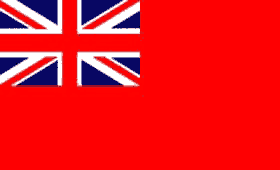Colonial Wars |
American Wars |
Link To This Page — Contact Us —
The Battle of Ninety-Six (Second)
May 22-June 9, 1781 at Greenwood County, South Carolina
 |
|||||||||||||||||
|
On a day which was dark and rainy, Greene arrived at and began the formal investment of Ninety-Six. This post had a garrison of Provincials, supported by the South Carolina militia, and was commanded by Lt. Col. John Harris. Also, the post had become the most important British post in the interior since the evacuation of Camden. Prior to that some of his advanced parties and militia skirmished with the loyalists and started the process of keeping the garrison in and further assistance out. At the time Greene had little more than 1,000 men, not counting local militia and his detachments at Augusta. Tarleton states the works at Ninety-Six were completed by this time, a claim MacKenzie disputes. Prior to Greene’s arrival Cruger had taken pains to lay in an abundance of supplies, in which he was only partially successful, as obtaining them was rather difficult. At the same time, he had removed or destroyed provisions from the area, making it subsequently necessary for Greene to supply his men from outlying locations. For specific troops strengths present at siege of Ninety-Six see 18 June.
At the recommendation of Kosciuszko, a sap was begun very close to the Star fort portion of the Ninety-Six, which position was commanded by Maj. Joseph Greene with 150 men from his own regiment, the 1st Bttn. Delancey, and 50 loyalist militia. Greene’s and Kosciuszko’s belief was that if the Star Fort could be taken that the rest of Ninety-Six would fall. Cruger erected a platform on which he placed his artillery, from which, along with some musketry, he fired down on the American approach. Then a sortie was sent out under Lt. John Roney, of the 1st Bttn. Delancey, which bayoneted a number of American sappers before assistance could arrive. Although Roney was killed, Cruger suffered no other loss. Greene was forced to withdraw to a distance to begin new approaches
Before the formal siege operations could be completed, news of an approaching British relief force heading towards Ninety-Six was given to Greene. He was persuaded to make an unsuccessful assault against the post. When the British relief force arrived, Greene had no choice but to withdraw because of being in the face of a superior British force.
Kirkwood: “22nd {May] This Day Crossed the Saluda. Surprised a party of Tories within sight of Nienty Six, Killed four, Spent the day in reconnoitering the Garrison, which was commanded by Col. Cruger. Marched ….9 [miles].
At Night were employed in raising a three Gun Battery, about 130 yards from their works and under a Scatering Fire from the Enemy all night.”
Seymour. "Next day, being the twenty-second, we crossed at Island Ford, and encamped before Ninety-Six. Nine miles. This day we took and killed eleven of the Tories in their encampment. We were employed this night and the next day in making breast-works and batteries before the town."
MacKenzie: "By eleven o'clock in the morning of the 22d of May, the platform in the salient angle of the Star, nearest to the Americans, was completed, and mounted with guns, to fire en barbet. These, with incessant platoons of musquetry, played on the works constructed by the enemy the preceding night, under cover of which, thirty men, marching in Indian-file, entered them, and put every man they could reach to the bayonet. This party was immediately followed by another of the loyal militia, who, in an instant, levelled those works, and loaded a number of negroes with the entrenching tools of the Americans. Though General Greene put his whole army in motion to support the advanced corps, they were intirely routed before he could effect his design. The handful of brave men that performed this service, retired into the Star, without any loss, excepting that of the officer who led them, Lieutenant Roney. He was mortally wounded, and died the following night, much esteemed, and justly lamented."
